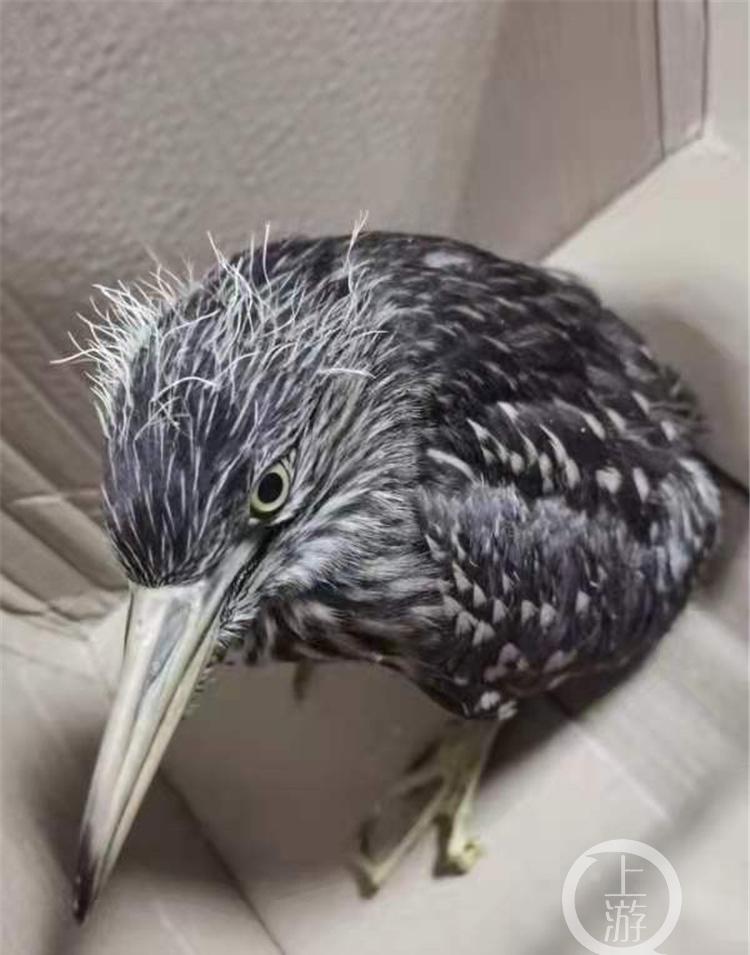
"Comrade police, I picked up a strange bird and don't know what to do." At about 19:00 on May 30, the police of the 110 Express Division of the Sand District received an alarm from a crowd, saying that they had picked up a strange bird of unknown species, which may be a protective animal.
On the same day, the policeman, Ms. Wang, found a gray sharp-billed "strange bird" flapping with its wings flapping in the bushes near the back door of Shaping Park, but could not fly. "I saw it looking like it was waiting to be fed, and I was worried that it would not be able to fly and be hurt by stray cats or stray dogs nearby." Ms. Wang said she had to take it home and feed it fish and meat, because she didn't know how to deal with it later, so she dialed 110 for help.
After receiving the alarm, the police rushed to Ms. Wang's home and found that the bird was extremely uncommon, although it was large but there was fluff on the body, it was judged to be a chick, and it did not have the ability to survive independently for the time being, and could not be directly released back to nature. Subsequently, the police found a cardboard box to temporarily put the bird inside and take it away, and handed it over to professionals for rescue.
The police then quickly contacted the wildlife protection station, and the staff confirmed that the bird was a night heron, which belonged to the national third-level protected animal, usually inhabiting streams, ponds, rivers, swamps and paddy fields in plains and low hilly areas, and was active at night and night, feeding on animal foods such as fish, shrimp and aquatic insects.
Experts said that the appearance of night herons in the downtown area of Chongqing fully shows that the quality of the ecological environment of the city and the community is gradually improving.
After figuring out the identity of the bird, the police took the bird to the police station for careful placement. Subsequently, the staff of the wildlife conservation station rushed to handle the relevant handover procedures. The staff of the protection station said that they would conduct further inspections of the birds and release them when they could.
Upstream journalist Fu Dixie